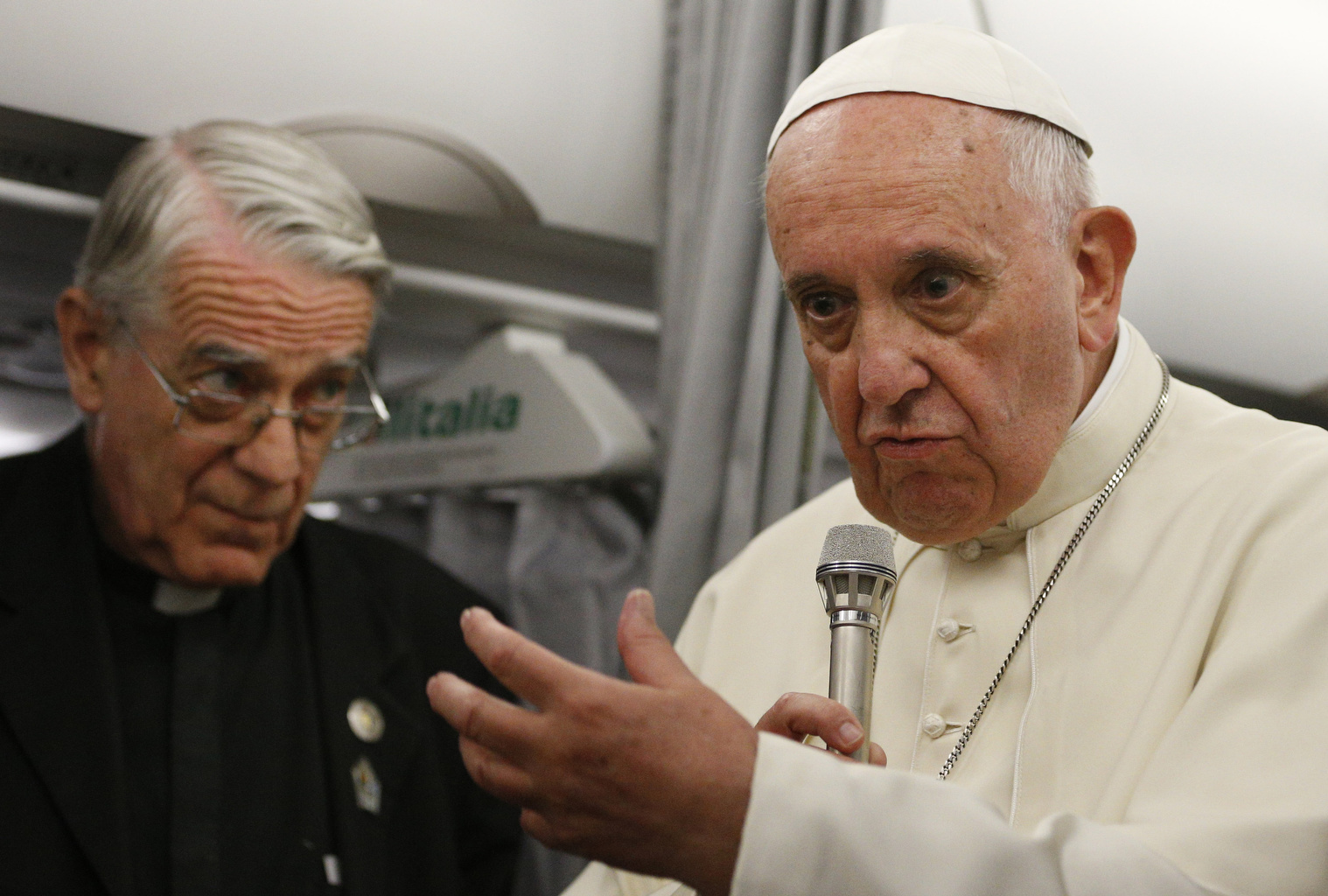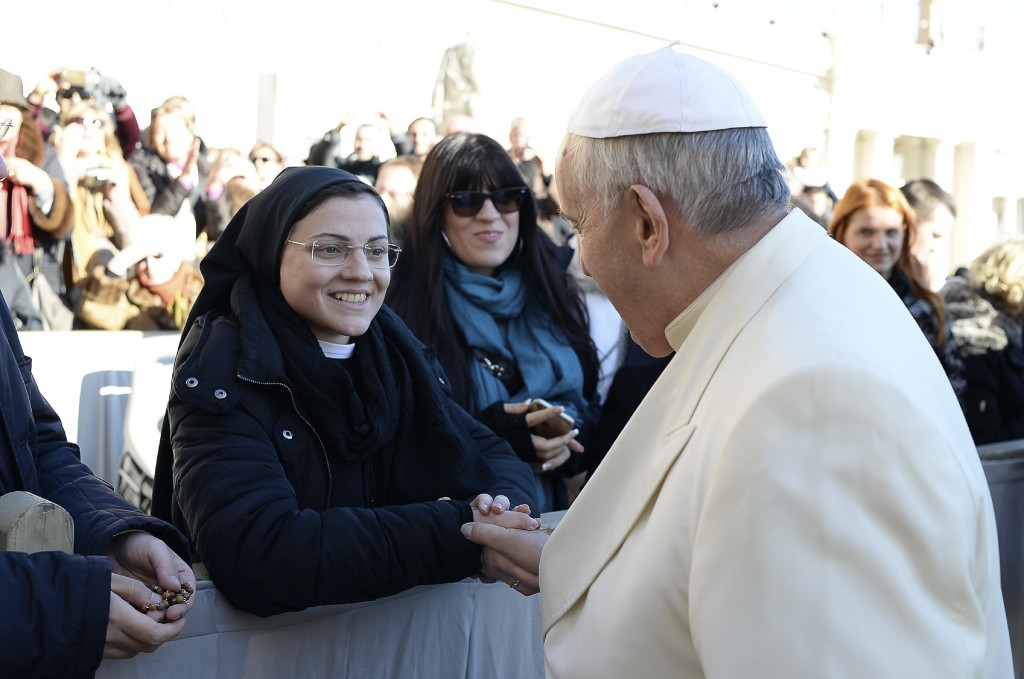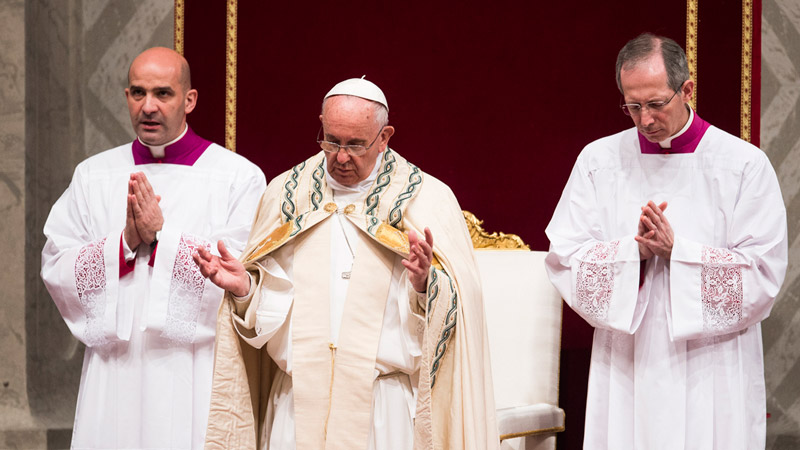
WASHINGTON—Despite repeated questions from journalists on what Pope Francis will say to President Barack Obama, a joint meeting of Congress and the United Nations on any range of potential subjects, Vatican spokesman Jesuit Father Federico Lombardi advised everyone to wait and listen for themselves.
During a Sept. 22 news conference in Washington in which he was queried on subjects the pope might tackle — the U.S. economic embargo against Cuba, the nature of U.S. involvement with Middle East nations such as Iraq, Iran and Syria and even what the pope expects to receive from America during his Sept. 22-27 apostolic journey — Father Lombardi said, “I am not a prophet.”
He advised, “You have to listen to what the pope will say. I am not to anticipate what the pope will say. Otherwise, there is no surprise. Listen and you will see which problems he addresses explicitly and which problem he will address not so explicitly.
“It will be very interesting,” he said.
Pope Francis was to meet Sept. 23 with President Barack Obama at the White House, address a joint meeting of Congress Sept. 24, and address the U.N. General Assembly Sept. 25.
In a similar vein, Father Lombardi did not disclose what went on between the pope and the president when they met behind closed doors at Joint Base Andrews outside of Washington shortly after “Shepherd One” touched down after its flight from Cuba Sept. 22. “Normally, these encounters are also private,” he said.
However, the Vatican spokesman remarked, “Pope Francis has a charism in the personal encounter with the other person. Also being with political leaders, he approaches the other as a complete person, not so much as a political leader that has a particular ideology, but as a complete person he meets this person. And then this person meets the pope as a concrete man. This is something wonderful.”
Father Lombardi said that during his visit, Pope Francis will “express appreciation for the history of the American nation and the American church.” By appreciation, the priest, said, the pope “means that he and the universal church receive an exchange of gifts from the American people and faithful. In this sense, it’s really impressive work of charity, of education, and, you would know better than I, the positive aspects that are here. This is surely an important contribution for the world of today, and of the life of the church.
“I think that the question that we have to address is a question of responsibility. In this land, there is great power, the power of the intelligence of science of the actions of the economy, in the enterprises, that these can help very much the progress if it is put to the service of the common good.”
Asked how Pope Francis’ critique in his encyclical “Laudato Si'” would be received by Americans in a capitalist economy Father Lombardi replied, “The pope has stressed he is in line with the social doctrine of the church. He is not driving in a bad direction.”
Cardinal Daniel N. DiNardo of Galveston-Houston, who appeared at the news conference with Father Lombardi, said, “It certainly is true that the United States is a place with intensive financial investment, economics. We have New York City as a symbol, I think, of that.”
He added the U.S. bishops themselves have said “what happens in the marketplace is important, but we can never forget the human person.”
By Mark Pattison Catholic News Service




